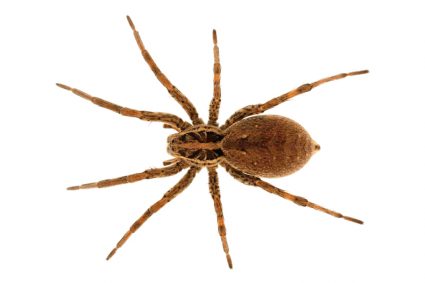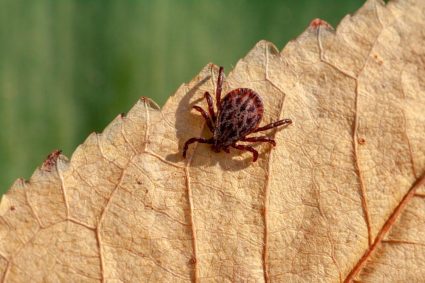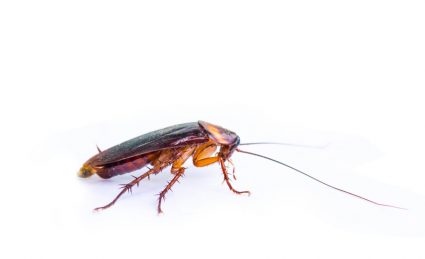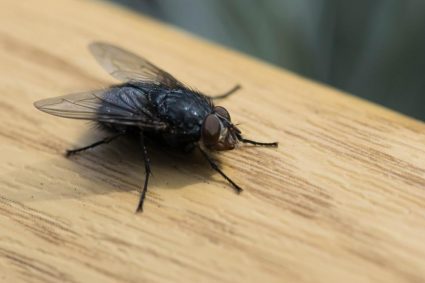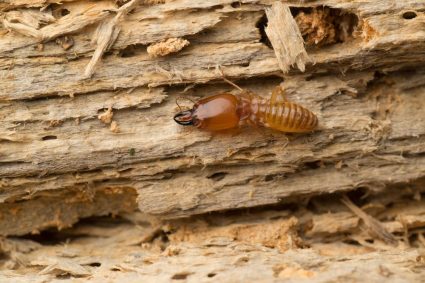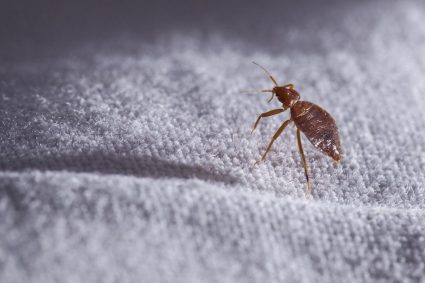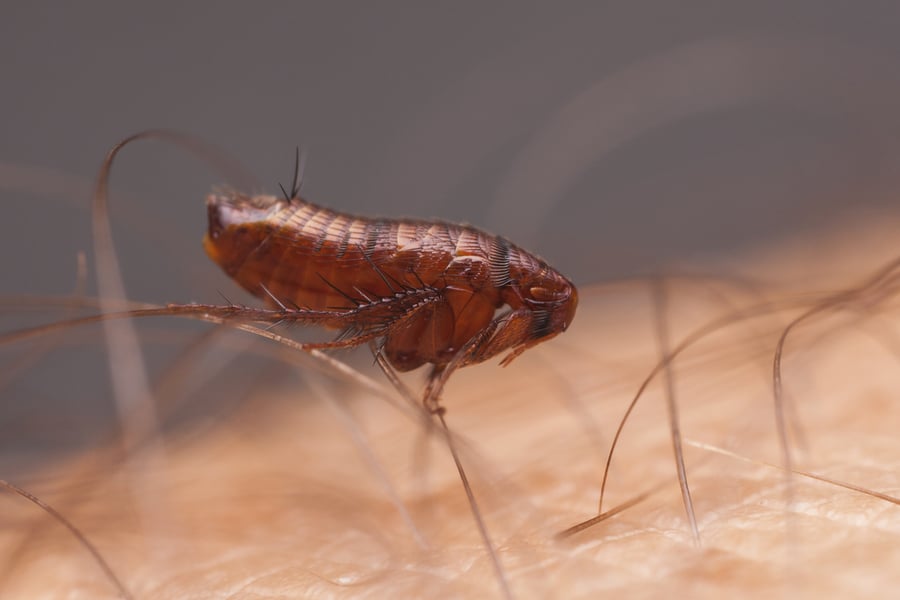
Like all pests, fleas are invasive, and a seemingly mild attack can soon become a full-blown infestation. People living in the tropics are more likely to experience more flea attacks than in other cities, especially during summer. The reason is that the hot weather is uncomfortable for these tiny critters and can even kill them.
So, they often seek warm, shady spots, like inside houses, to hide from direct sunlight. But when does it go from a minor issue to a problem that needs extermination? We will show you, in this article, all the signs to look out for before calling an exterminator for fleas.
- Fleas are blood-sucking insects that feed off human blood and pets like dogs and cats.
- Fleas have a short lifespan of between 30 and 90 days and can multiply rapidly. A single flea can lay thousands of eggs.
- Deploying DIY strategies against fleas doesn’t always give a permanent solution to flea infestations. Thus, if your at-home flea-deterring attempts are not yielding the desired results, it is best to engage an exterminator to handle the problem.
The sections below will discuss why fleas are a problem and the best time to call an exterminator to handle a flea infestation problem. Finally, we will also answer other common queries about a home flea infestation.
Why Are Fleas a Problem?

Fleas are blood-sucking parasites with over 2000 existing species that typically feed off domestic animals like dogs and cats. But, they are not opposed to invading human homes and making a feast of human blood.
Another thing that makes fleas problematic is how difficult it is to eliminate them and their dangers. For example, fleas multiply fast, despite having a short lifespan of between 30 and 90 days.
In its short lifetime, a single flea can lay thousands of eggs. So, the flea population can grow quickly if your pet comes home with a flea or two.
Then, consider that these parasites move fast and can jump into hiding places you don’t expect. These include curtains and the top of shelves and drawers. So, even when you adopt flea control measures, you may not get all of them at once.
The surviving fleas will multiply, making the infestation a continuous loop. Their constant presence in your house places your family in potential danger.
For example, let us assume your pet suffers a flea bite and constantly scratches it for relief. In the end, this can lead to sores and cause infections.
These pests can even spread certain parasites like tapeworms to your pet(s), making them uncomfortable. Humans are not left out, as there are documented reports of fleas spreading diseases to humans.
Some flea-borne diseases are the plague, Cat Scratch Disease (CSC), and flea-borne typhus. Symptoms typically show within two weeks of contact and include fevers, nausea, rashes, loss of appetite, and vomiting.
Signs To Call an Exterminator for Fleas

A typical flea infestation starts when a pet or human occupant brings the parasite indoors. From there, the fleas spread around the house, reproducing and hiding in carpets, cracks, and furniture.
After noticing flea presence in your house, the next logical thing to do is adopt some control measures. These include vacuuming carpets, washing pet and human beddings, and treating the yard.
However, with all these at-home remedies, these biting parasites may make a return or, worse, not leave entirely. Many factors contribute to this — for example, your methods may kill the live fleas but not their eggs.
So, while you may have a breakthrough with your flea infestation situation, a bigger problem may be on the horizon. Whenever the flea eggs hatch, you will need stricter control strategies to handle the problem.
It is at this point that we recommend getting expert help. Whenever you notice that the flea problem may be out of your control, it is best to call in exterminators.
Why Is Flea Professional Extermination Important?
From what we discussed in the last heading, it is clear that DIY flea control strategies do not always work. But that is not the only reason we recommend calling an exterminator for fleas.
Below, we consider some of our top reasons:
1. Exterminators Produce Better Results

Although DIY pest control measures are cheaper, professionals have better output. For one, they can identify an infestation even when you think the situation is normal.
This is because they have better training and expertise to predict the situation. Then, these experts can recommend better strategies to eliminate fleas for good.
More often than not, these strategies are better than the ones you find with an online search. Plus, your DIY methods may not completely deal with the situation. This then leaves you to fight off a new infestation soon after treatment.
2. These Experts Use Safer Strategies

One of the reasons why professional assistance is more expensive is that experts do more than eliminate fleas. They ensure that whatever treatment options they use do not harm your family.
From experience, these professionals know that humans and pets can get allergic and other severe health reactions to chemical treatments. So, they often adopt safer and trusted flea control measures.
3. Professional Help Is Cost-Effective

This point may sound contradictory, but it is not. We stated earlier that DIY methods are typically cheaper. But, what we did not add is that these control measures can pile up over time, making them more expensive.
We all agree that DIY remedies do not always work. Then, when this happens, there is a need to try something else to solve the problem.
However, with every new strategy you try, you spend more money. You may not notice it at first because these treatments cost small sums.
But as time passes, you may find that you have spent more than an exterminator would charge. The situation worsens because there are no guarantees that these DIY strategies will work. So, they can sometimes be an expensive bad investment.
But with professional help, you may handle your flea infestation situation with one session and a one-time payment.
Conclusion

Although fleas tend to be more active during summertime, they can invade all-year round. The risk is higher if you have pets that often spend time outdoors, no matter how short.
They can easily cling to your pets outdoors and access your home through them. Once inside, fleas have almost undisturbed access to constant food sources, which may include your family members’ and visitors’ blood.
Above, we discussed the potential risks these parasites cause and when to call for professional help. So, if you are considering fixing the situation yourself, this article suggests a better alternative.
Got further queries? Please check our answers to some frequently asked questions about flea infestations below.
Frequently Asked Questions
How Can I Get Fleas Out of My Dog?
A simple wash in flea shampoo can kill off the pests in your pet’s fur. Then, follow it up with a flea comb to remove any lingering fleas in the dog’s hair.
What Is the Sock Test for Fleas?
One way to identify a flea infestation is to wear socks on a carpet or rug. Any flea hiding underneath will climb on the socks, indicating a potential pest problem.
Are Fleas and Ticks the Same?
Although they are similar blood-sucking parasites, fleas and ticks are very different. Ticks cling to their host longer than fleas, often going unnoticed. While fleas require animal blood to reproduce properly, ticks are not picky eaters.

